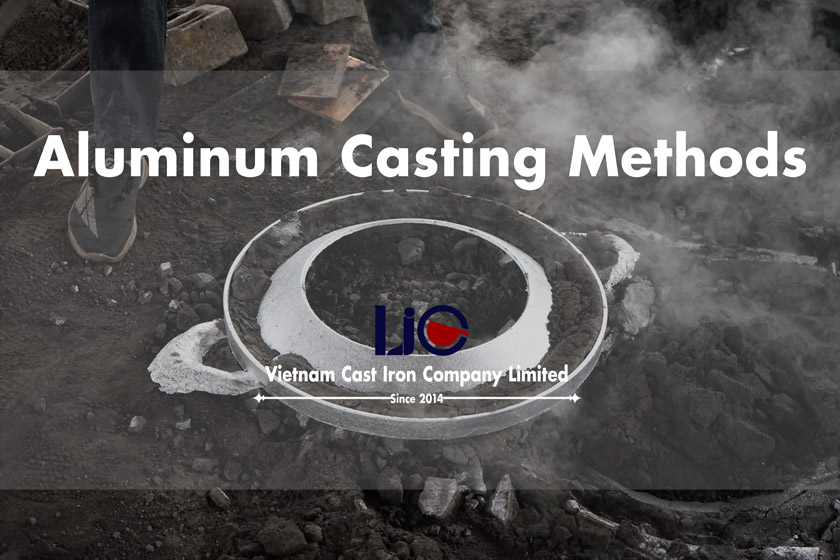Things about Alcast Company
Things about Alcast Company
Blog Article
The Ultimate Guide To Alcast Company
Table of ContentsAlcast Company for DummiesThe Buzz on Alcast CompanyFacts About Alcast Company Uncovered5 Easy Facts About Alcast Company ShownAn Unbiased View of Alcast CompanyThe Ultimate Guide To Alcast Company
The refined difference hinges on the chemical web content. Chemical Comparison of Cast Aluminum Alloys Silicon promotes castability by lowering the alloy's melting temperature level and improving fluidity during spreading. It plays an important duty in allowing elaborate mold and mildews to be filled accurately. In addition, silicon adds to the alloy's stamina and put on resistance, making it beneficial in applications where longevity is critical, such as automotive parts and engine elements.It likewise boosts the machinability of the alloy, making it simpler to refine right into finished items. By doing this, iron adds to the general workability of light weight aluminum alloys. Copper enhances electrical conductivity, making it helpful in electrical applications. It also boosts deterioration resistance and includes in the alloy's general strength.
Manganese adds to the stamina of light weight aluminum alloys and enhances workability (aluminum foundry). It is commonly used in wrought light weight aluminum products like sheets, extrusions, and accounts. The presence of manganese aids in the alloy's formability and resistance to fracturing throughout manufacture procedures. Magnesium is a light-weight aspect that provides strength and influence resistance to aluminum alloys.
Excitement About Alcast Company
It permits the manufacturing of light-weight parts with excellent mechanical residential properties. Zinc boosts the castability of aluminum alloys and aids regulate the solidification process throughout casting. It improves the alloy's stamina and solidity. It is frequently located in applications where elaborate forms and great information are needed, such as ornamental castings and particular automotive components.

The primary thermal conductivity, tensile stamina, return stamina, and elongation vary. Select suitable resources according to the efficiency of the target item generated. Among the above alloys, A356 has the greatest thermal conductivity, and A380 and ADC12 have the most affordable. The tensile limit is the contrary. A360 has the most effective yield strength and the greatest prolongation rate.
The Buzz on Alcast Company

In precision spreading, 6063 is well-suited for applications where elaborate geometries and premium surface finishes are paramount. Instances include telecommunication units, where the alloy's superior formability enables streamlined and cosmetically pleasing designs while keeping architectural integrity. Similarly, in the Lighting Solutions sector, precision-cast 6063 parts develop stylish and effective lighting components that require detailed forms and excellent thermal efficiency.
It brings Get the facts about a better surface area finish and much better rust resistance in A360. The A360 exhibits exceptional elongation, making it suitable for facility and thin-walled components. In accuracy spreading applications, A360 is fit for sectors such as Customer Electronic Devices, Telecommunication, and Power Devices. Its boosted fluidity enables for detailed, high-precision components like smart device housings and communication device real estates.
Our Alcast Company Diaries
Its special homes make A360 a useful selection for accuracy spreading in these sectors, improving item durability and high quality. Aluminum Castings. Aluminum alloy 380, or A380, is an extensively used casting alloy with a number of unique qualities.
In precision spreading, aluminum 413 beams in the Consumer Electronic Devices and Power Equipment markets. It's frequently used to craft detailed components like mobile phone real estates, electronic camera bodies, and power tool coverings. Its accuracy is exceptional, with tight tolerances as much as 0.01 mm, making certain remarkable product setting up. This alloy's superior rust resistance makes it a superb choice for exterior applications, ensuring resilient, durable items in the pointed out industries.
The smart Trick of Alcast Company That Nobody is Discussing
The aluminum alloy you select will considerably affect both the spreading procedure and the residential properties of the final product. Due to the fact that of this, you have to make your decision carefully and take an informed technique.
Identifying the most ideal light weight aluminum alloy for your application will mean weighing a vast array of qualities. These comparative alloy features comply with the North American Die Spreading Organization's standards, and we've separated them into two classifications. The first group addresses alloy characteristics that impact the manufacturing process. The second covers features affecting the homes of the last product.
The Definitive Guide for Alcast Company
The alloy you choose for die spreading straight affects a number of aspects of the spreading procedure, like exactly how easy the alloy is to collaborate with and if it is susceptible to casting defects. Warm splitting, likewise referred to as solidification fracturing, is a regular die spreading problem for light weight aluminum alloys that can lead to internal or surface-level rips or splits.
Certain light weight aluminum alloys are more at risk to warm breaking than others, and your choice needs to consider this. An additional typical defect located in the die spreading of aluminum is die soldering, which is when the actors stays with the die wall surfaces and makes ejection tough. It can damage both the actors and the die, so you need to look for alloys with high anti-soldering properties.
Rust resistance, which is currently a remarkable feature of aluminum, can vary significantly from alloy to alloy and is a necessary particular to take into consideration depending upon the environmental conditions your product will certainly be exposed to (Aluminum Casting). Wear resistance is another building commonly sought in light weight aluminum items and can distinguish some alloys
Report this page